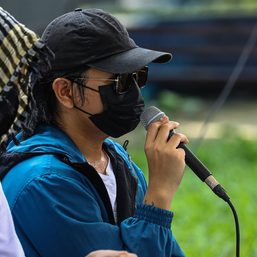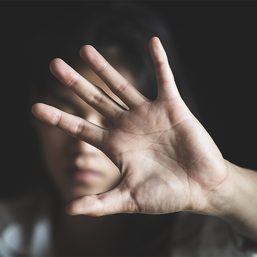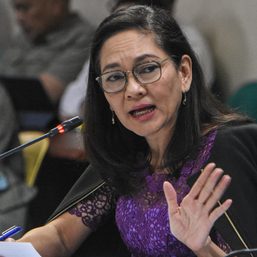SUMMARY
This is AI generated summarization, which may have errors. For context, always refer to the full article.

Senators approved on final reading a bill that would expand government protections against online sexual abuse and exploitation of children.
On Thursday, May 27, a total of 23 senators voted to pass Senate Bill (SB) No. 2209 or the proposed Special Protections against Online Sexual Abuse and Exploitation of Children Act.
No senator voted against the bill or abstained from the vote.
SB 2209 provides a comprehensive list identifying which acts constitute online sexual abuse of children.
The measure would consider it illegal to conduct the following acts through online means:
- To hire, employ, use, persuade, induce, engage, or coerce a child to perform or participate in whatever way in the creation or production of any form of child sexual abuse and exploitation material and any related activities
- To produce, direct, manufacture, facilitate, or create any form of child sexual abuse and exploitation material, or participate in its production, direction, manufacture, facilitation, or creation
- To knowingly publish, offer, transmit, sell, distribute, broadcast, advertise, promote, export, or import by any means any form of child sexual abuse and exploitation material
- To possess any form of child sexual abuse and exploitation material
- To provide a venue for the commission of the prohibited acts, like dens, private rooms, cubicles, cinemas, houses, private homes, or other establishments
- For film distributors, theaters, and information and communication technology services – by themselves or in cooperation with other entities – to distribute or facilitate the commission of any form of child sexual abuse and exploitation
- For financial intermediaries to allow their services to be used to sexually abuse children
- For a parent, guardian, primary caregiver, or person having custody or control of a child to facilitate or permit the child to engage, participate, or assist in any form of child sexual abuse and exploitation
- For adults to engage in the grooming of a child, which includes communicating to the child by means of a computer system, the internet, or social media with the purpose of facilitating the commission of sexual activity, or a romantic or sexual relationship with the child
- To engage in pandering of any form of child pornography
- To willfully access any form of child pornography
- To influence, recruit, transport, transfer, harbor, provide, or receive a child by any means for the purpose of sexually abusing them online
- To introduce or match for money, profit, or material, economic, or other consideration a child to a foreigner or to any person for the purpose of sexually abusing the child online
- To advertise, publish, print, broadcast, or distribute or facilitate the production of any material promoting online sexual abuse of children
- To stream any acts of child sexual abuse
- To willfully subscribe to, join, donate to, or support an internet address that hosts materials on the online sexual abuse of children
- To hire, employ, or pay a facilitator to stream or livestream child sexual abuse and exploitation
- To produce, direct, manufacture, create, or facilitate the streaming of child sexual exploitation
- To knowingly benefit, financial or otherwise, from the online sexual abuse of children
- To sexualize children by presenting them as objects of sexual fantasy in any digital platform
- To attempt to commit any of these prohibited acts
These would be treated as separate crimes from those already being penalized by Republic Act No. 7610 or the Special Protection of Children against Abuse, Exploitation, and Discrimination Act, as well as RA 9208 or the Anti-Trafficking in Persons Act.
The bill would also give additional tools to law enforcement agencies to go after Filipino and foreign sexual abusers of children. Any sex offender convicted overseas would be blacklisted and would be barred from entering the Philippines.
SB 2209 would also require internet intermediaries – like social media networks, internet service providers, web hosting providers, and online payment system providers – to craft systems to detect, block, and report cases of sexual abuse of children.
President Rodrigo Duterte earlier approved the imposition of sanctions on internet service providers that fail to comply with their obligations to fight child pornography.
Senator Risa Hontiveros – who sponsored SB 2209 as chair of the Senate committee on women, children, family relations, and gender equality – said it is about time the Philippines moves to end cases of online sexual abuse of children.
“Let’s make sure that there will be no more predators and abusers who will be able to avoid our laws, and that there will be no more child victims subjected to such horrible acts,” said Hontiveros.
Children’s rights groups have said sexual abuse of children online increased during the coronavirus lockdown.
The Department of Justice’s Office of Cybercrime received 870,500 more cyber tips during the 2020 lockdown compared to figures from the same period in 2019.
The House version of the bill is still pending at the committee level. – Rappler.com
Add a comment
How does this make you feel?










There are no comments yet. Add your comment to start the conversation.